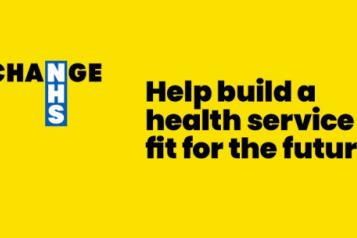What did international recruits tell us about working in local NHS hospitals?

The NHS has seen an increase in the number of internationally recruited staff deciding to leave, citing factors such as discrimination from colleagues and patients, unmanageable workloads, unequal opportunities, financial strains and difficulties adjusting to life in the UK.
Given that the NHS already has a high number of vacancies and is hugely reliant on the international workforce, it is essential that efforts are made to retain these staff and to understand why they are choosing to leave the NHS.
To understand experiences locally, Hertfordshire and West Essex Integrated Care Board (ICB) commissioned Healthwatch Hertfordshire to conduct an independent review of internationally recruited staff across three local hospital NHS Trusts.
Through an online survey, one-to-one interviews and focus groups, we heard from 349 internationally recruited staff working at West Hertfordshire Teaching Hospitals NHS Trust, East and North Hertfordshire NHS Trust and Princess Alexandra Hospital NHS Trust. It did not include international recruits working in social care and community healthcare services.
Our research highlighted key issues and areas for improvement including:
Recruitment Process: Most had a positive experience, receiving regular communication and support during each stage of the recruitment process. However there were clear inconsistencies and suggested improvements included more practical support, one main point of contact and meeting staff at the airport.
“There needs to be clear communication and responding to enquiries in an appropriate timeframe. Prior to arriving into the country, I had regular communication with the recruitment team. This dramatically changed once I had arrived in England where my responses were going unanswered. It made the process very stressful.”
“My experience at the airport was the worst as I did not have a number from someone from the Trust. I only had my agent’s number and they did not reside in the UK and the number would not go through. It took me about 2 hours to get connected to the taxi driver who had come to pick me up. When we got to the hospital they did not know the address to drop me and I was not aware either which was a nightmare. There should be a member of staff to come and receive new staff so you feel wanted.”
“The recruitment agency sorted out the visa process and everything. They paid the money at that time, they showed you how to do everything, the travel was arranged for us and they picked us up from the airport.”
Roles and Expectations: Many were not aware of their role and responsibilities prior to arrival, and 57% were not assigned to a clinical area - with many allocated to wards in which they had no, or little, experience. International recruits also received minimal clinical and technical support despite the NHS often operating very differently to their home country. Managing expectations and making the most of a recruit’s previous experience would help with retention.
“In terms of expectations of what I will be doing, the practical bits, I think that was not very clear. The way we work in different countries will be very different to how I’ll be working in the UK. So when I came here, it was quite a shock for me.”
“The placement allocation is not what I expected. I am an ED nurse but they allocated me to a surgical ward. It is a total waste of skills, knowledge and talent if they do not respect the work experience and nursing background that I have. They should have said they do not have capacity and to just call me once there was a vacancy for an ED nurse post.”
“I think a video on what the hospital looks like, what the wards look like, patients, areas, that might be helpful to get a picture of what we are going into and how it works.”
Support during Induction: Many spoke about induction positively, commenting that the process was smooth and informative. Suggestions for improvement included providing practical support and information to help international recruits settle and adjust, as well as more one-to-one support and pastoral care.
“My supervisor … came and took me to the ward, showed me how each thing worked and they were there with me for a week, shadowing, helping me in the ward, so I had a very good experience.”
“Some of the equipment we use here we don’t use back home and some of the software we are exposed to, we don’t know much about them at home. I felt they should have given us more time to be able to learn these things and not rush us.”
“I guess the major thing the Trust can do is to make sure that they have a personal one-to-one, an initiative to check-up on every single international nurse being recruited, at least for a few months, to help them adjust and to make sure they’re being welcomed and take care of.”
Working for the NHS: Many enjoy working for the NHS, describing the culture as “supportive” and “welcoming” and shared positive examples of good teamwork, collaboration and caring colleagues and management. However key concerns included staffing pressures, unmanageable workloads, difficulties maintaining a work-life balance, feeling undervalued and lack of diversity in leadership.
“A patient told me on my first day that they’d like to spend a penny and I thought they wanted to spend money! There could be something to familiarise new staff with the language and communication.”
“My manager, they always try to accommodate, they’re a blessing to us international recruits because they understand our situation and being away from our family.”
“I know the majority of nurses in my Trust working in wards struggle and do not always speak up. The staff and patient ratio is poor, some days its 1 nurse to 9-10 patients. For these reasons I had to leave the wards and join a Speciality Team where I am well supported. This is what now all nurses in wards are doing – they are leaving Trusts or their jobs and switching their job roles as well.”
Unequal Treatment: Over 50% have faced negative experiences at work, including cases of bullying, racism, discrimination and harassment from both patients and staff. Some felt unsafe to speak up and did not feel confident that their Trust would address their concerns.
“There has been a few incidents with patients, sometimes they don’t want to be treated by a person of colour and I have been told that to my face.”
“My manager gave me advice and said I could refuse to see the patient and to not accept that behaviour and gave me reassurance that it isn’t acceptable and we would be right to say we aren’t seeing the patient. They showed me how to deal with those situations so I think the support I got was good.”
“There is a really bad perception of the international nurses from other members of the health team, especially the doctors. They feel international nurses are beneath and work here as maids.”
“We need to have an independent committee, to bring a safe culture and freedom to talk. This will make international nurses feel supported.”
Career Progression: More than 77% felt they had access to training and learning opportunities. However, many raised concerns about the lack of equal opportunities for career progression and clear indications of favouritism and bias.
“The primary reason why I chose to work in the UK was career progression. As a midwife back in Ghana, you don’t have a diversity of choices but in the UK you have so many branches you can work in.”
“For 5 years I didn’t know how to get ahead in my career, there was no guidance if you do this, you will get this, or this is the way you can get up the ladder. We need someone to guide us, to give us the information.”
“I wish there were more opportunities for career progression in the Trust, as career progression vacancies seem a bit biased and limited for international recruits. We are often viewed as inexperienced or as students new to a setting when it is not the case at all.”
Living in the Community: Most were satisfied with the area they live and felt they had settled into the community, having built strong relationships and networks. Concerns focused on the cost of accommodation, safety and feeling lonely and isolated. It was emphasised that NHS Trusts need to avoid homogenising internationally recruited staff and recognise individuality.
“We had somebody come with us, showed us the town, how to use the bus, pay money, they took us to Tesco to show us how to pay, how to scan things. It’s the small things that make a big difference.”
“The cultural event that was introduced last year was a really good concept, staff members found out so many things about other nationalities, we tasted each other’s food, we had different cultural dance performances, it helped bring us closer together.”
“There is a lot of work to be done on that managerial level on understanding that culture and awareness of what struggles international recruits go through.”
Recommendations to help retain international recruits
Recommendations have been made to the Hertfordshire and West Essex Integrated Care Board (ICB) and were categorised into issues of importance requiring action and suggestions for implementing good practice.
Recommendations requiring action:
- Working to eradicate unequal treatment from staff and negative behaviour from patients
- Working to eradicate unequal opportunities in career progression and development
- Ensuring openness and transparency with international recruits about their clinical area and expectations of the role
- Improving the clinical and technical support international recruits receive to enable effective clinical practice
- Supporting international recruits and helping them to maintain a healthy work-life balance
- Improving initiatives that appreciate, value and recognise international recruits
Suggestions for implementing good practice:
- Improving communication, information and support during the recruitment process
- Improving the support provided during induction to help international recruits prepare for the role
- Ensuring practical support is available upon arrival to the UK and during the induction process
- Improving the quality of peer support offered to international recruits
- Protecting the health and wellbeing of international recruits and improving the support they receive from management
- Supporting international recruits with their career progression and development
"We welcome Healthwatch Hertfordshire's report into the experiences of internationally recruited staff within the acute hospital Trusts in Hertfordshire and West Essex. As a system we would simply not be able to deliver the high quality care received by our population in each of those Trusts without the skill, experience and contribution of staff recruited from across the world give us. We want to ensure that internationally recruited staffs' experience is equitable to our domestic workforce, and that all of our staff receive the experience, support and development opportunities that they richly deserve.
Colleagues across the system are already addressing many of the issues and concerns raised by staff in this report, and we will work tirelessly to ensure that all of the recommendations made in this report are reviewed and acted upon across all organisations involved in delivering health and care across Hertfordshire and West Essex.
We would like to thank Healthwatch Hertfordshire and colleagues across the Trusts that participated in this research and gave their time to either give their views or supported others to. It is fundamental that we listen, learn and act in response to staff's views and we are committed to continuing to do so."
Ruth Bailey, Chair of Hertfordshire and West Essex People Committee and Tania Marcus, Chief People Officer, Hertfordshire and West Essex Integrated Care Board.
Downloads
You can read the full Report and Executive Summary below.


